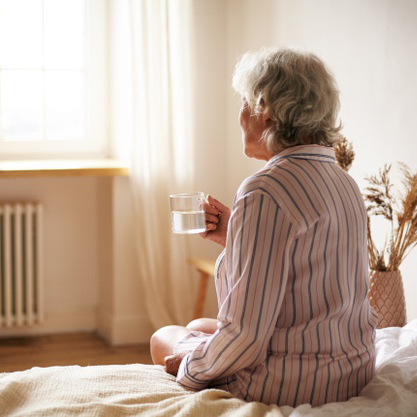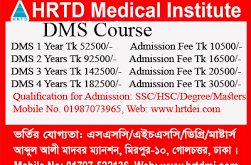Geriatric Food Management Details
Geriatric Food Management. Mobile Phone 01797522136. Geriatric Food Management is focuses on tailoring diets to meet the specific needs of older adults. Geriatric food management is an important subjects of Caregiving Nursing, Caregiver course. All the above courses are available in HRTD Medical Institute. HRTD Medical Institute is an Organization of HRTD Limited.
What is Geriatric Nutrition
Old age is one of the vulnerable and prone stages in terms of health status. It requires a lot of awareness, motivation, and support, physically, mentally, and socially. Geriatric nutrition is essential, determining the factor of elderly mass, specifically over the age of 60 years. Geriatric diet has been always underreported, though everyone wants to make the senescence easy. Adequate nutrition is always important for better aging because malnutrition leads to decreased independence due to physical weakness and muscle wasting. As people age, geriatric nutrition propels the maintenance of health, physical performance, and psychological well-being. Immunity weakens with proceeding age, which is influenced by lack of nutrients and differed dietary habits.
Need Consultation for a geriatric diet?
Quickly Book an Appointment.

Physiological changes during aging
- Body composition changes as fat replaces muscle, in a process called sacropenia.
- Basal metabolic rate (BMR) declines about 5% per decade during adulthood.
- Body water decreases with the drop in caloric needs and lowered protein reserves.
- with progressive age digestive hormones decreases and so the enzymes
- A progressive drop in bone mass starts when people are in their 30s and 40s
- Memory impairment caused by various types of dementia, Alzheimer’s disease, or other neurological diseases rises markedly.
- Overweight and obese individuals are at an enhanced risk of co-morbidities including type 2 diabetes, fatty liver disease, gallstones, high blood cholesterol and triglycerides, orthopaedic disorders (Osteoarthritis), hypertension and other cardiovascular diseases, certain cancers and psycho-social problems.
Nutritional requirement in aging
- Nutritional requirements in aging, as assessed by a geriatric dietitian, play a crucial role in the health and well-being of geriatric patients. Caloric needs may decrease with age, but it’s important to note that these requirements can vary greatly among individuals. The role of antioxidants such as vitamin E, carotenoids, and vitamin C becomes increasingly significant in the diets of geriatric patients, as they have the potential to enhance immune function, a key concern in aging individuals.While the need for vitamin A tends to decrease, diet for geriatric patients often require higher levels of nutrients like riboflavin, vitamin B6, vitamin B12, and zinc to support overall health.Additionally, encouraging regular physical activity, including activities like walking and yoga, is essential for maintaining body movements and overall vitality in the elderly. The expertise of a dedicated geriatric dietitian can help tailor a diet plan that meets these specific nutritional needs for geriatric patients.
Behaviour Guidelines
Elderly should incorporate small frequent meals at regular intervals. Gap between two meals should not be less than 3 hours. Emphasis should be on not skipping breakfast and having early dinner choose healthy snack options. Follow the healthy dietary guidelines while eating out. Boiled / steamed / roasted / grilled cooking methods should be preferred over frying Alcohol is not under recommendation.
Dietary Guidelines
Variety of nutrition for geriatric patients include whole grains, millets, and pulses should be included in the daily diet.
- Two Glasses (1 glass = 250 ml) of low-fat milk and equivalent milk products should be included in the food for geriatric patients’ diet.
- About 4 – 5 servings of fruits and vegetables (all colors) should be included. Encourage intake of salads.
- 15 – 20 g of healthy oil (low Saturated Fatty Acids and Trans Fatty Acids) is recommended. Promote alternate oils. Substitute nuts and oilseeds in place of fats and oils.
• For non-vegetarians, egg white, lean chicken, and fish is recommended.

Food & Wellness Geriatric Nutrition Programme
Food‘n’Wellness helps you to Emphasize on healthy traditional diet, consumption of available protective foods; Minimize or combine foods containing hidden animal fats (fatty meat, full-fat dairy products, some fast/processed food, and hydrogenated plant fats (some fast/processed food, commercial cakes/biscuits); Limit visible oil consumption; Enjoy food and eating in the company of others, but avoid the regular use of energy dense (poor nutrient content) celebratory foods and beverages which are high in fat and or sugar.
10 Nutrient rich food of elderly
- Leafy green
- Whole grains
- Fatty fish
- Berries
- Nuts & Seeds
- Eggs
- Legumes
- Sweet patatoes
- Dairy drink food or alcohol
- Avocados
 MATCDHAKA – Medical Assistant Training Centre in Dhaka Pharmacy, Veterinary, Dental, Nursing, Pathology, Physiotherapy and Homeopathy Training Institute in Dhaka
MATCDHAKA – Medical Assistant Training Centre in Dhaka Pharmacy, Veterinary, Dental, Nursing, Pathology, Physiotherapy and Homeopathy Training Institute in Dhaka





